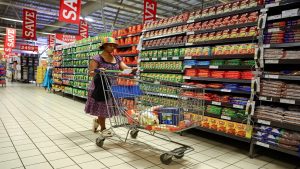The South African Petroleum Industry Association (SAPIA) has warned that thousands of jobs will be lost if government forges ahead with a new proposed regulation for the sector in the next two years. From 1 September 2023, the Petroleum Products Specifications and Standards will mandate the use of ultra-low sulphur petrol and diesel products in the country.
SAPIA says they have been given short notice to implement this new regulation. This morning the association released a study to illustrate the possible impact of this regulation on the sector.
SAPIA says decisions will have to be made on whether domestic refineries will be upgraded to meet the new regulations. The association says the regulations will have a direct impact on employment and increase dependency on petroleum product imports, which is bad for the economy.
Oil industry’s contribution to the economy
Thousands of jobs will be placed at risk, including industries associated with refineries. SAPIA commissioned a study conducted by FTI Consulting that shows the industry contributed R139 billion to the GDP in 2019.
It is also the second-highest multiplier effect on GDP, compared with other industries. It created 171 thousand jobs.
“Quarter of a million jobs are then created in South Africa, which is no small thing given the state of unemployment in the country. Again, we see the same pattern for every job created in this industry there are more jobs supported in the economy. It is one of the highest or the fourth-highest multiplier in the economy. And the nature of the skills it tends to be a highly skilled job industry,” says FTI Consulting’s Mariam Kane Garcia.
The oil industry supported 1.5% of the country’s total employment. For every 1 job created in the industry, a further 1.52 jobs are supported elsewhere in the economy.
The study further showed the industry contributed R94 billion in capital expenditure and generated R121 billion in tax.
“There was R75 billion collected from fuel levies and this is just collected by oil companies and passed directly to government and in terms of companies they paid direct tax of R14.8 billion on company income. And therefore a further R31.1 billion of indirect taxes were paid. In the ten-year period from 2009 to 2019, these levies collected from fuel prices have increased by over 158%.So, the importance of the industry in collecting and passing these revenues to government is very important,” says FTI Consulting’s Laura Menzie.
South Africa has a well-developed downstream industry involved in importing, producing, and distributing petroleum products.
SAPIA says the sector was responsible for the supply of about 35-billion litres of petroleum products to these markets.
During 2019, six refineries were operating, processing, and transforming crude oil, natural gas, and coal into petroleum products.
SAPIA is currently consulting with the Department of Mineral Resources and Energy to try to amend the regulations.
SAPIA Executive Director Avhapfani Tshifularo, says they are also working with the government to look at different cost recovering mechanisms once the regulations are implemented.
“Each individual company will put what they think is the correct approach from their side and only once the department has listened to everybody then they will try to consolidate everything into a single proposal that is suited to all the people who are intended beneficiaries cost recovery mechanisms. As SAPIA, we are a bit constrained in terms of what is preferred in terms of mechanisms of recovering cost.”
Climate-change regulations are prompting a shift away from traditional fuels like petrol. Many of South Africa’s oil refineries will need to upgrade equipment in order to meet the new standards.






